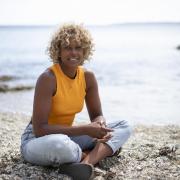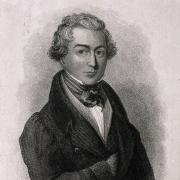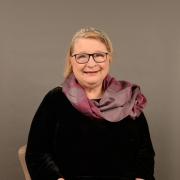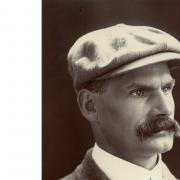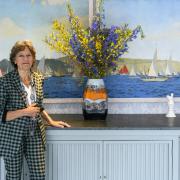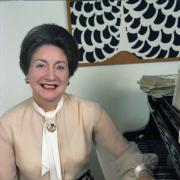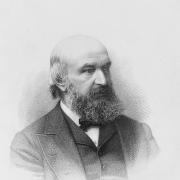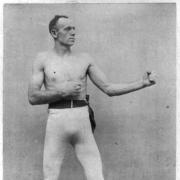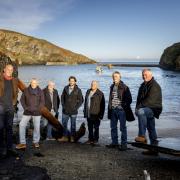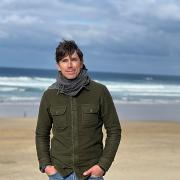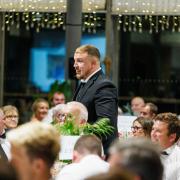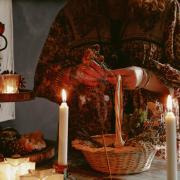Phil Pring tells Ian Wilkinson his incredible tale of taking part in one of the world's toughest ocean races
Phil Pring tells Ian Wilkinson his incredible tale of taking part in one of the world’s toughest ocean races
In all walks of life, those who achieve great things are often modest, unassuming folk who seem to go out of their way to understate their achievements. And so it proved with Cornishman Phil Pring, who, with his friend Ben Cummings (Skippy), rowed a small open boat across the Atlantic in one of the world’s greatest challenges. The Atlantic Rowing Race, from the Canaries to the West Indies, is held every two years and is organised and supported by Cornish property development company Woodvale, based in Saltash.
I visited Phil recently in his home in Penzance to find out more about his adventure. Just before meeting him I had a chance to look over the tiny vessel that had braved the Atlantic, for there it was, parked in the driveway. Just 24ft in length and 6ft in the beam, it is constructed of marine ply with a tiny aft cabin that has just enough room for a bunk bed and precious little else. How on earth could two grown men have lived in such a confined place for 76 days?
As you would expect, the hull is weather-beaten but it is also badly damaged on the port side, evidence of the terrifying capsize that nearly cost the pair their lives within a mile of the finishing line.
Phil relates his story: “I was born in Cornwall and I’ve spent most of my time here in Penzance, so the sea was always an important part of my life,” he says. “I enjoyed diving and I’ve been involved in gig rowing for some time. When I left university I did a series of research-based jobs but I found them a bit uninspiring. I had learnt recreational diving here in Penzance and decided that it would be good to teach other people how to dive, so I took a year out in the Cook Islands. I got my ticket as a dive master and I was offered a job on the Islands so I stayed there for about a year.”
On his return to Cornwall, and with no immediate commitments, Phil saw the opportunity to participate in the Atlantic Rowing Race. Together with his friend, Ben Cummings, a local boatbuilder and rowing enthusiast, Phil decided that the goal was certainly achievable, but of course a boat was needed. The boats are roughly based on a single class design. and because of financial constraints, the pair decided to build the boat themselves. “It took us over a year and we named her Vision of Cornwall. Although we had no major sponsor, various local people and companies chipped in with donations. Plug into the Sun, who supplied the solar panels, and the Headland Hotel in Newquay, who supplied the emergency radio beacons, were particularly generous. But basically we funded it ourselves – by organizing a range of fundraising events, and with support from our families. It’s a clich�, but even though the race was more taxing than either of us dreamt, the hardest part was getting to the starting line!”
“We operated a watch system of two hours on and two hours off during the day and four hours on and four hours off during the night”
Vision of Cornwall finally left the Canaries on 4 January 2010. “The first few days were the hardest,” Phil tells me. “You have to adjust from a cosy home environment to something completely different. We operated a watch system of two hours on and two hours off during the day and four hours on and four hours off during the night. I felt ill for the first week or two, and that was mostly due to not eating and drinking enough. After two hours’ rowing I was so exhausted and dehydrated that I’d just crawl into my bunk and sleep until it was time to start rowing again. By then I was even more dehydrated and not eating and drinking regularly, and it developed into a vicious circle that was difficult to break. Other low points included sleep deprivation, a feeling of total isolation, heavy seas, periods of westerly headwinds and the very real danger of being run down by supertankers!”
And the high points? “After about three weeks I really started to get into a decent routine and started to feel human again. We had some close encounters with nature – huge whales following the boat for days, and on some occasions amazing displays with flying fish sailing through the air, followed by bigger fish that occasionally jumped in pursuit, followed by birds swooping in anticipation of a meal. Three creatures all in the air, two of which shouldn’t have been there!”
“We had iPods, of course, and we also had audio books. Other than that I used to think of friends and family a lot, and also what it would be like to arrive at the finishing line. Meals were important, but one of my regrets is that we didn’t take enough ‘nice’ things to eat.”
On the morning of the 76th day at sea, land was sighted, and Phil and Ben rowed ‘two up’, confidently expecting to be in Antigua before midnight. Phil recounts the fateful moments just a mile from the finishing line when a rogue wave suddenly struck the boat. “It was pitch-black and the wave came from nowhere. Suddenly we were up-ended and in the water. We had struck a reef just half a mile from the shore and the noise – just like a plane taking off – was deafening. We clung to the upturned hull while being swept by large waves, and our attempts to swim underneath to the cabin to locate distress flares ended in failure. The water was only about 4ft deep but the coral was so sharp we couldn’t stand on it. Eventually the noise abated and we drifted clear of the reef; we were carried into a bay where the water gradually got calmer. Eventually we managed to activate one of the emergency radio beacons and pretty soon after that, just a stone’s throw from the land, we were rescued by the SAR service. They re-united us with anxious families and friends who had made the journey to Antigua to welcome us in.”
The disappointment in not finishing the race must have been crushing, I suggested. “No,” replies Phil. “When you are fighting for your life and thinking you might drown, it tends to put things into perspective. I wasn’t disappointed at all!”



